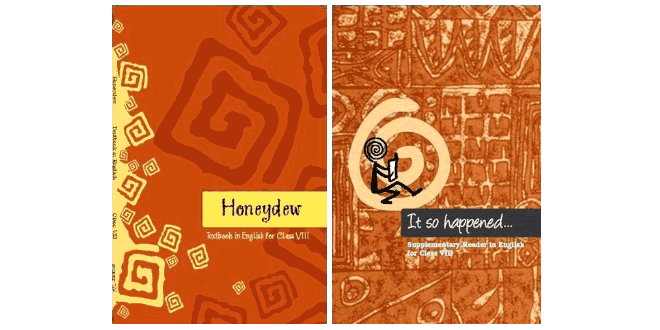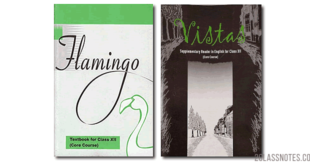Children at Work 8th Class NCERT CBSE English ‘It So Happened’ Chapter 2
Question: How old was Velu when he left his home? Why did he leave his home?
Answer: Velu was eleven when he ran away from home. He took this risk because he could not tolerate his drunkard father’s beating.
Question: What problems did Velu face when he stood on Chennai platform?
Answer: Velu was alone, tired and hungry. He felt miserable. For two days, he had eaten nothing except some peanuts. He was penniless and homeless too.
Question: How did Jaya earn her livelihood?
Answer: Jaya was a small girl who lived in a cottage near a dirty drain. She was a ragpicker. She earned her livelihood by collecting paper, plastic, glass and even food from the dustbins and heaps of rubbish.
Question: What sort of girl was Jaya? How did she help Velu?
Answer: Jaya was a poor little girl ragpicker who carried a bag on her back. She collected waste material from the dustbins. Though small, she was kind-hearted. She helped Velu with food as well as a regular job as ragpicker.
Question: What problems do millions of poor children face in India? What basic issue does the story discuss?
Answer: This story gives us a picture of children who are bound to work to support not only themselves but also their parents. They can’t go to school, they can’t play like other children of their age. The story draws our attention to the evil of child labour.
Question: Velu stood on the platform but he felt “as if he was still on a moving train”. Why?
Answer: Velu stood on the platform but felt as if he was still on a moving train because his legs were still wobbly and shaky after the journey to Chennai. Usually, the effect of a moving train stays for some time after the end of the journey.
Question: What made him feel miserable?
Answer: Velu felt miserable and exhausted because he had run away from his village two days ago and had not eaten anything except some peanuts and a piece of jaggery for the last two days.
Question:
- Velu travelled without a ticket. Why?
- How did he escape the ticket collector’s attention?
Answer:
- Velu travelled without a ticket because he had no money to buy a ticket.
- He escaped the ticket collector’s attention because luckily the ticket collector did not come to the unreserved compartment.
Question: Why had Velu run away from home?
Answer: Velu had run away from home because his father used to beat him everyday. His father would also spend the money earned by Velu and his sisters on drinking.
Question: Why did he decide to follow the ‘strange’ girl?
Answer: He decided to follow the ‘strange’ girl because he did not know where to go and what to do. Basically, he did not have a plan for himself.
Question: Can Velu read Tamil and English? How do you know?
Answer: Velu could read Tamil but not English. When he saw the huge signboard, he could not understand what it meant because the writing was in English. Later, when the girl pointed at a large building, Velu read the Tamil sign and came to know that the building was the Central Jail.
Question: “If you are not careful, you will soon be counting bars there,” the girl said.
- What is she referring to?
- What does she mean when she says “If you are not careful…”?
(She says something a little later which means the same. Find that sentence.)
Answer:
- She was referring to the Central Jail.
- When she said “If you are not careful…” to Velu, she meant that he should not get caught. All he had to do to stay away from jail was to not do something stupid and get caught by policemen.
Question:
- Where did the girl lead Velu to?
- What did they get to eat?
Answer:
- The girl led Velu to Sri Rajarajeshwari Prasanna Kalyana Mandapam. A wedding was taking place there. She took him behind the hall near a big garbage bin that was overflowing with rubbish.
- Velu got a banana and a vada, while the girl got only one banana to eat.
Question: What work did she do? Think of a one-word answer.
Answer:
- The girl led Velu to a marriage hall.
- They got some food from the garbage bin. It was leftover.
Question:
- What material are the ‘strange’ huts made out of?
- Why does Velu find them strange?
Answer:
- The ‘strange’ huts were made out of metal sheets, tyres, bricks, wood, and plastic.
- Velu found the huts strange because in his village, the houses were made of mud and palm leaves. The huts he saw were made up of all sorts of things and looked like they could fall any moment.
Question: What sort of things did Jaya and children like her collect and what did they do with those things?
Answer: Jaya and children like her collected paper, plastic, glass, and other such things. They sold these items to Jam Bazaar Jaggu, who further sold it to a factory.
Question: Is Velu happy or unhappy to find work? Give a reason for your answer.
Answer: Velu was unhappy to find work because he had not run away from home to dig through garbage bins. The only work he had ever done was weeding and taking cows out to graze. However, since he did not know Chennai too well, he decided to work as a ragpicker till the time he found a better job.
Question: Is Velu a smart boy? Which instances in the text show that he is or isn’t?
Answer: Yes. Velu seems to be a smart boy.
He ran away from home because of bad circumstances. When he reached Chennai, the girl, who was a ragpicker, tried to help him. Initially, he thought of not taking her help. However, he was smart enough to realize that he was very hungry and did not know where to go. Therefore, he followed the girl. He knew how to read Tamil. When the girl told him to eat the banana that she found in the garbage, he refused at first. However, he quickly realized that he was very hungry and therefore, ate it. Even though he found the place and even the girl very strange, he continued to walk along with her. He tried to understand why she collected rubbish. He knew that he had not come to the big city to collect rubbish; however, he adjusted to the circumstances and decided to do the same work till he found a better job.
Question: Do you think Jaya is a brave and sensitive child with a sense of humour? Find instances of her courage, kind nature and humour in the text.
Answer: Yes, Jaya was a brave and sensitive child with a sense of humour.
She was a ragpicker and knew how to live in the city. Jaya knew her way around Chennai, which is a fairly big city. Where Velu was extremely nervous and confused about crossing the busy street, Jaya dragged him through and crossed the street quickly. She was a brave girl. She knew from where to find food. She knew that one has to be careful to not get caught by the police.
Jaya was also a very sensitive and kind girl as she helped Velu in all possible ways. She understood that he had run away from home as she had seen many others like him. She also understood that he was hungry. She helped him cross the road and found him something to eat. Then, she also told him how he could earn his own money. She also gave him an empty sack and a pair of shoes for this purpose.
Jaya was also of a humorous nature. When she saw Velu sitting at the platform, she asked him if he was there to become rich. When Velu was not able to cross the road, she dragged him to the other side of the road and said “What do you think you’re doing? Grazing cows? If you stand around in the middle of the road like that, you’ll be chutney.” When Velu asked her if they were going to eat at the hall where the wedding was taking place, she replied “Hopes!” by shaking her thumb under his nose. They could never have been able to eat there. When she gave him a banana from the garbage, he was shocked and asked if they would eat that food. She replied wittily “Chey! What do you think I am? A dog? I only take untouched food.” When he asked her name, she said “Oho! So you’ve been following me around without even knowing my name.” She helped him throughout and kept answering his questions with a sense of humour.
Question: What one throws away as waste may be valuable to others. Do you find this sentence meaningful in the context of this story? How?
Answer: Yes, this story shows that what one throws away as waste might be valuable to others. People throw away empty bottles, papers and broken glasses as waste because these items are not of use for them. Jaya and other children like her collect these items and other such things and earn a living by selling these to others. People throw away food that is extra or has gone rotten. At weddings, a lot of food is wasted and goes to the garbage bins. These poor children eat from the bins and satisfy their hunger. The old shoes and tattered clothes that people throw after use are of a big help to poor people such as these children. In the story, Velu’s feet were burning because of excessive heat. Jaya gave him an old pair of shoes, which did not have laces, so that his feet were somehow protected.
We can say that this story shows in more ways than one that what one throws away as waste may be valuable to others.
Question: Under what circumstances did Velu become a ragpicker?
Answer: Velu was an eleven year old boy. He ran away from home because his father was addicted to drinking. He used to beat him and his sister and snatched whatever they earned. He came to Chennai where he met a girl of his own age. The girl was carrying a big sack on her back. She was picking up plastic cups and putting them into the sack. Seeing Velu in a miserable condition she took pity on him and got food for him. She brought Velu to her hut, which was built out of wood, plastic and sheets. She gave him a pair of old shoes, a sack and a stick. He wondered what work she wanted him to do. She told him that he was now a ragpicker like her. He too now had to collect things from waste materials. Velu was alone in that big city. He had no option and therefore accepted the job of a ragpicker.
 Class Notes NCERT Solutions for CBSE Students
Class Notes NCERT Solutions for CBSE Students


